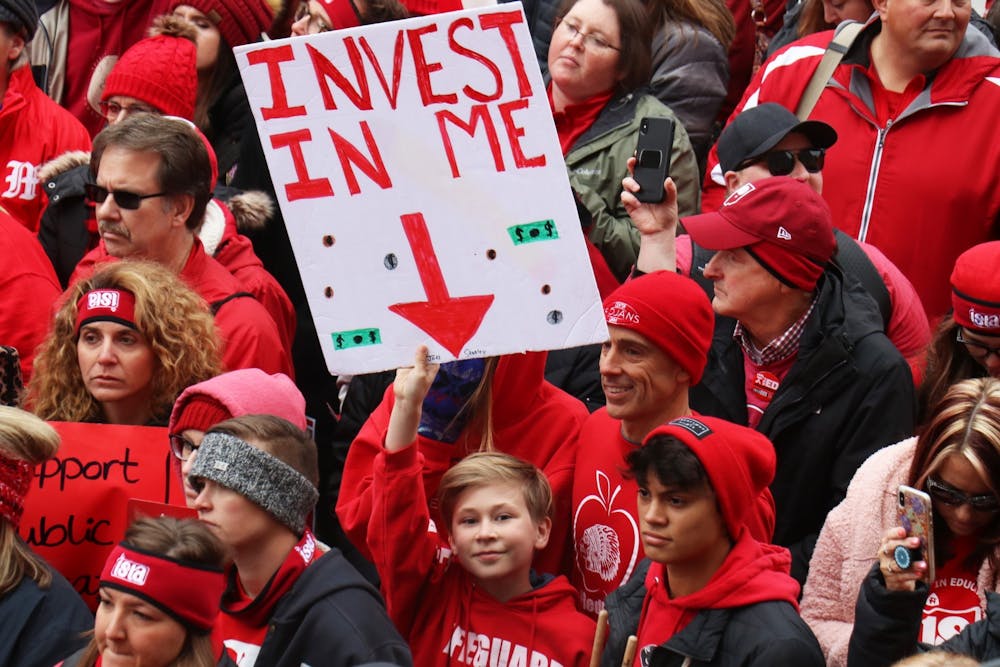Two online charter schools, Indiana Virtual School and Indiana Virtual Pathways Academy, defrauded Indiana at least $68 millionby falsely claiming enrollment from 2011 to 2019, a state audit found this month.
This brings back the question of whether charter schools should receive state funding at all. Online charter schools are even more susceptible to scrutiny because they are shown to perform worse than brick-and-mortar charter schools. Due to financial and educational concerns, Indiana should eliminate online charter schools.
A charter school is a public school that operates under a contract between the school and an authorizer, an entity approved by the state legislature to open charter schools. Charter schools have much more freedom than traditional public schools, and this freedom can be abused. Indiana Virtual School and Indiana Virtual Pathways Academy share an administration and were chartered by Daleville Community Schools near Muncie. The two schools falsely claimed that 14,000 students were enrolled.
The audit report states that there was little to no oversight on the schools. There was no documentation to show enrollment was verified by Daleville.
Since the state distributes funding per student, the schools quickly stole large amounts of money from taxpayers. Not only did these schools steal from the state, but they robbed children of the opportunity to have a good education.
After the schools shut down in August 2019, many of the students from these schools transferred to Indiana Connections Academy, another virtual charter school, and do not have transcripts or any records of what they’ve learned.
This is not an isolated incident. Virtual charter schools in Ohio, Oklahoma and California have also overinflated enrollment figures.
Charter schools don’t have to follow many state education regulations, which allows them to be innovative and flexible. Charter schools are meant to provide a choice for parents in their child’s education.
However, virtual charter schools are not good alternatives to traditional public schools. Some students benefit from online charter schools, but for the vast majority of students, this is not the case.
A study by the Center for Research on Education Outcomes at Stanford University, which is partially funded by a pro-charter foundation, compared K-12 online charter students’ test scores to traditional public school students’ scores from 2008 to 2013. The study found that over the course of a 180-day school year, students lost 180 days of learning math.
The students made no progress in math for the entire course of the study.
Indiana’s virtual charter schools have below-average test scores and graduation rates. These schools receive mostly D and F grades from the state.
Charter schools in Indiana need to receive 4 years of F ratings before the state board can intervene by capping enrollment, reducing authorizer fees or closing the school. A student could be enrolled in a failing charter school for the entirety of their high school career.
Some of the problems with online charter schools are problems with online education in general. A study of students at DeVry University found that students performed better in traditional classrooms than online, and the GPAs of lower-performing students were most negatively affected.
Online education already puts students at a disadvantage, and this is worsened by oversight issues with charter schools. Even the National Alliance for Public Charter Schools wants Indiana to improve oversight on online charter schools.
Oversight falls mainly to the authorizers of the charter school. Authorizers are paid an oversight fee, and this can disincentivize closing charter schools. Improving a system of accountability seems like an unnecessary uphill battle to fight when traditional public schools already have accountability infrastructure in place.
It’s important to have online schools available for students who would have difficulty attending brick-and-mortar schools because of disability, family circumstances or other reasons, but these online schools should not be an alternative for the average student and they should not be chartered.
The futures of young Hoosiers are at stake, and this risk is too high to justify having online charter schools. Online charter schools are failing, and it’s time for them to close.
Allyson McBride (she/her) is a sophomore studying English and political science. She is the director of outreach and diversity for College Democrats at IU.






